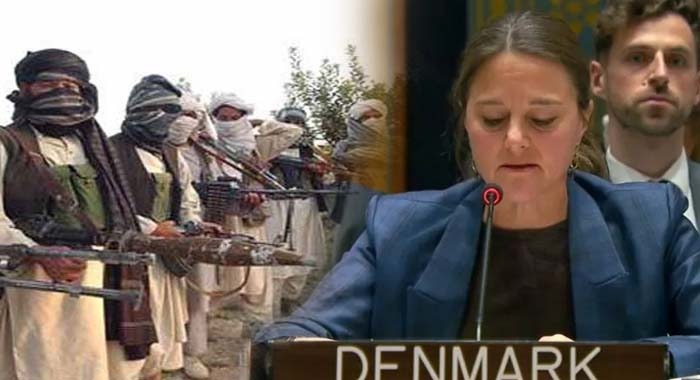In a rare and decisive acknowledgement from the international community, the United Nations Security Council has validated Pakistan’s long-standing warnings about the resurgence of the Tehreek-e-Taliban Pakistan (TTP) from Afghan soil. The confirmation did not come from Islamabad—but from Denmark.
Briefing the 15-member Security Council, Ambassador Sandra Jensen Landi, chair of the UNSC’s 1267 Al-Qaeda Sanctions Committee, warned that the TTP, operating freely under the patronage of the Afghan Taliban, now poses a “severe and escalating threat to regional stability.” She highlighted that the group’s nearly 6,000 battle-hardened fighters have used Afghan territory to launch multiple high-profile attacks on Pakistan, many of which resulted in mass casualties.
Her remarks mark one of the strongest international censures of the Afghan Taliban’s enabling role—not only in providing sanctuary but in offering logistical, operational and, increasingly, direct support to TTP militants targeting Pakistan.
“Validated by the World, not Just Pakistan”
Responding to the briefing, Pakistan’s Deputy Permanent Representative to the UN, Ambassador Usman Jadoon, reminded the Council that Pakistan has long warned that TTP, ISKP, BLA and their affiliated networks are thriving under the protection of the de facto Afghan authorities and with the backing of “our principal regional adversary”—India—without naming it.
Jadoon described Pakistan as a frontline state that has sacrificed more than 80,000 lives and suffered trillions of rupees in economic losses in the fight against terrorism. He underlined that the near-total dismantling of Al-Qaeda owed significantly to Pakistan’s military operations, yet the new wave of terrorism emerging from Afghan soil remains a direct threat to regional and global security.
Pakistan’s New Security Posture: Zero Tolerance, Zero Exceptions
Crucially, Ambassador Jadoon reaffirmed Pakistan’s newly sharpened security doctrine: a zero-tolerance policy toward all terrorist networks and their facilitators, without distinction.
He urged the UN system to ensure that the 1267 sanctions regime reflects real-world threats, warning that listing and delisting decisions must not be manipulated for political agendas. The sanctions architecture, he argued, should also encompass far-right extremists, ultranationalist militias, xenophobic networks, and anti-Islam hate groups whose violence is rising globally.
China Calls for BLA & Majeed Brigade Sanctions
Adding momentum to Pakistan’s stance, China’s representative pushed the Committee to formally designate the BLA and its Majeed Brigade as terrorist entities under the UN system. This would send, in Beijing’s words, “an unambiguous message of zero tolerance for terrorism in all its forms.”
The call comes amid growing evidence—raised by Pakistan and acknowledged by several UN members—that India’s intelligence apparatus has used Afghan territory and regional proxies to fuel violence in Balochistan.
UN Warning Reinforces Pakistan’s Ground Reality
The UNSC confirmation of TTP’s Indo-Afghan-backed operations aligns with recent Pakistani intelligence and security assessments.
The TTP, scattered after years of sustained counter-terrorism pressure inside Pakistan, was revitalised after August 2021, finding refuge, funding, training infrastructure, and ideological space in Afghanistan under Taliban rule. What began as “looking the other way” by Kabul has now evolved—according to multiple UN briefings—into active cooperation, joint attacks, and shared logistics.
Pakistan’s position, once dismissed by critics as political rhetoric, is now formally validated at the world’s highest security forum.
A Regional Threat with Global Implications
During the Security Council session, committee chairs warned that terrorism is mutating, technologically adapting, and spreading—particularly in Africa—but remains deeply rooted in South-Central Asia. The TTP’s revival under Afghan Taliban oversight, they noted, threatens South Asia’s stability and the broader international security landscape.
Zero Tolerance Meets International Recognition
For Pakistan, the UNSC’s acknowledgement arrives at a critical time. Islamabad has already hardened its security posture:
No distinction between “good” and “bad” militants
No exceptions for groups exploiting Afghan safe havens
No room for foreign-engineered proxies targeting Pakistan
With the UN now echoing Pakistan’s concerns—and China backing the need to sanction anti-Pakistan outfits—the momentum is shifting.
A Global Warning and National Reassurance
The UNSC confirmation sends a dual message: to Pakistan, that its concerns are justified and recognised globally, and to terrorists, that their Afghan sanctuary will no longer shield them from justice.
TTP’s brutality, Afghan Taliban’s complicity, and India-backed proxy narratives may have sought to undermine Pakistan’s security, but Pakistan’s zero-tolerance stance, combined with global validation, ensures these threats will be confronted head-on.
In the war against terrorism, Pakistan is resolute, united, and uncompromising. The TTP and its sponsors now face an unambiguous reality: there is no safe ground for terror, and no mercy for those who violate Pakistan’s sovereignty.





